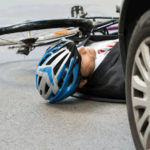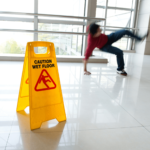
Some of the most common forms of distracted driving include:
- Texting
- Talking on a cell phone
- Eating or drinking
- Talking to others in the car
- Grooming
- Falling asleep
- Disciplining children
- Reading and looking at maps
- Using GPS
- Watching videos
- Adjusting the radio
Distracted driving is highly risky behavior. According to the National Highway Traffic Safety Administration (NHTSA), distraction was a factor in approximately 10% of all fatal car accidents in 2012. Distraction was a major factor in 18 percent of crashes that resulted in some type of serious injury.
Below are some important tips to remember to reduce distracted driving:
- Hands-Free Is Not Safe: Some states have laws that ban handheld cellular device use while driving. That is good, but hands-free devices really are not much safer. Your brain continues to remain distracted by a conversation even when using a hands-free device. Save the conversation for when you are not driving.
- Eating and Drinking Is for Home: It is very easy to spill that scalding coffee in your lap while driving. That could lead to a fatal accident. Take care of meals and drinking at home.
- Don’t Use the Vanity Mirror While in Motion: We always see women looking in their mirrors and putting on make up while driving. Although this may not be against the law, it is nevertheless unsafe. Statistics show that virtually all people have a decline in driving performance when doing two or more things at once, including putting on make up while driving.
- Pay Attention to the Road, Not Passengers: One of the biggest problems with distracted driving is having children in the car. The AAA Foundation for Traffic Safety states that passengers are often the biggest distractions for drivers. Specifically, young children are four times more distracting than adults. Infants can be eight times more distracting. You should not be glancing in the rearview mirror constantly to check on the kids.
- Driving Tired Could Kill You: About 40% of drivers admit that they have fallen asleep while driving. The NHTSA states that drowsy driving causes at least 100,000 crashes annually, and 1550 deaths. If you are on a trip and are falling asleep, pull over and take a break. Getting out of the car and getting fresh air often can recharge your batteries.
If you or a loved one have been injured in a car accident that was caused by the negligence or recklessness of another party, you should immediately consult with an attorney as you may be entitled to compensation.
Contact a Personal Injury Attorney Today
Involved in a car accident? Sustained serious injuries? You may be entitled to monetary compensation. For more information or to schedule a free consultation with an experienced car accident attorney in Los Angeles, call the Law Offices of Samer Habbas today at 888.848.5084.
Samer Habbas, Esq
State Bar: #243683
Samer Habbas is a California attorney with over 15 years of experience in personal injury law. Throughout his career, he has successfully recovered over $300 million for his clients, solidifying his reputation as a leading advocate in the field.
Samer swiftly gained recognition for his adept negotiation skills and unwavering dedication to his clients. His practice spans a wide range of personal injury cases, including car accidents, dog bites, funeral home abuse, premises liability, and wrongful death.
Samer is known for his compassionate approach and commitment to securing favorable outcomes for his clients. His expertise has earned him the trust and respect of both his clients and his peers within the legal community. He is also deeply invested in giving back to his community. He actively participates in pro bono work and volunteers his time to various charitable organizations. Samer is a champion for those who have been wronged, leveraging his extensive experience and expertise to make a meaningful difference in the lives of his clients and his community.
Recent Post
-
April 15, 2024
-
April 12, 2024
-
April 9, 2024
-
April 8, 2024
-
April 8, 2024












